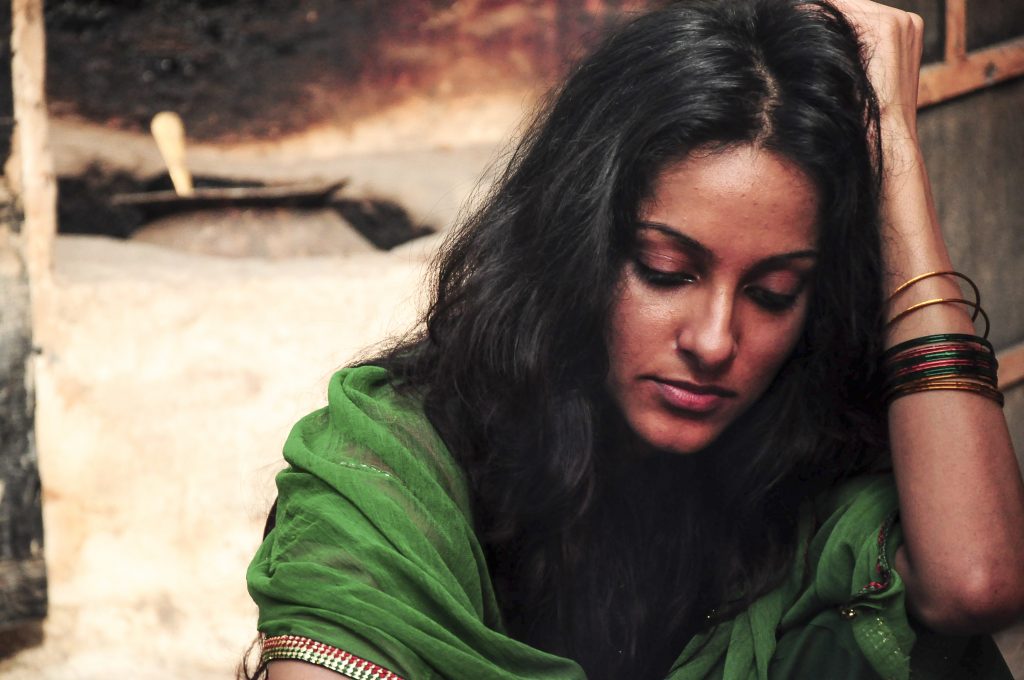Writer-director Rahul Dahiya’s gut-wrenching indie film, G Kutta Se, is a film on the abhorring practice of dishonorable killing of young boys and girls who ‘soil’ the family’s good name in the hinterlands of Haryana. Here patriarchy, misogyny, guns and local abuses dominate the social environment. The film is refreshingly multi-layered in the telling of its tale and also shows us a fine observation of the dark side of Haryanvi rural life. This makes Dahiya’s maiden effort even more significant despite some script hiccups in its second half.
G Kutta Se follows Virender (Rajveer Singh), a highway car napper who leads a life of thuggery and violence. He and his friends are waiting on the Gurugram-Delhi highway for their routine loot when they come across Priti, a married woman eloping with her driver in her car. The interaction between the car nappers and Priti almost leads to her rape. Priti uses her bravado to wriggle out of what could have become a horrific situation. While Priti resists the rapist and claims that she has not yet allowed her lover to touch her, she also allows Virender to come physically close to her, perhaps as a payback for stopping his friend. The turbulent midnight drive from Gurugram to Delhi ends in the two making out and exchanging numbers, even as Virender convinces her to return to her husband. It is a sequence that although overlong and self-indulgent, nevertheless sets up the film for what it is to follow, horrific though it is.
This is followed by a series of well-knit episodes that introduce us to other characters, in particular Diksha and her cousin, Kiran. While we want to stop Diksha from posing for a MMS, we fervently hope that Kiran and her beau run away from the surrounding horror. If men are the chief architects of this violence and subjugation, women too follow it unquestioningly in the name of tradition. But do they really have a choice? Both Diksha and Kiran’s mothers are part of a society where women have been trapped and silenced for generations. The close up of Kiran’s brother and his total lack of reaction while his mother is being thrashed mercilessly by his father simply reveals just how normal and acceptable it all is. If death is the inevitable fate of girls who bring ill-repute and dishonor to the family, it obviously never applies to the men – neither to Kiran’s father who ‘hunts’ for women in the fields nor to the village septuagenarians who take pleasure in watching Diksha’s MMS with lustful gaiety. It is perhaps Virender alone who is patronizingly gentle amidst these violent, lusty men. He breaks down at the killing of his sister and kills Kiran’s lover instead of attacking her.
Despite striking all the right cinematic notes in the departments of casting, production design, music, cinematography and editing, the film does falter after the interval – in its writing and narrative flow. For instance, two cases of honor killings back-to-back in the same family seems too, too far fetched. Though both stories have a different end, yet one feels that perhaps exploring one of them in its entirety might have been a better option and made for a stronger film. The issue seems to override the narrative post interval and while it is engaging enough, it is also admittedly overcooked. Another element that really doesn’t work is Dahiya’s use of Virender’s dog’s death as a metaphor in the film.
Still, the film keeps us engaged for most parts and that too with a relevant story that needed to be told. G Kutta Se deserves a nod just for that.
Hindi, Haryanvi, Drama, Color



where to watch it.
i need link